Feral pigs in Canada: The solution is far from near
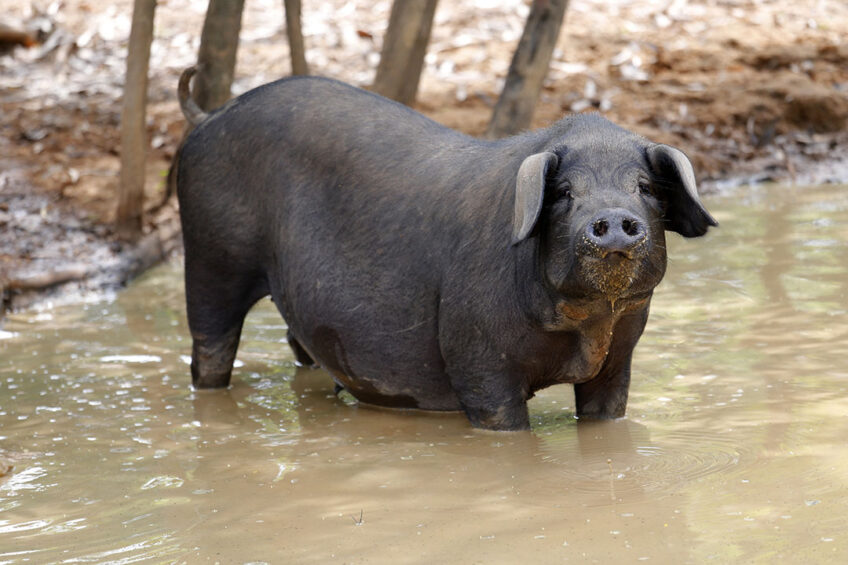
A petition pleads for ‘peaceful co-existence,’ but leading wildlife experts decry misinformation about the invasive threats of wild pigs. Meanwhile, a transboundary group is making strides, ASF plans are in place, and a sighting hotline is set up in Ontario.
The wild boar situation in North America continues to evolve. Wild pigs were brought to North America from Europe a few decades ago and mated to domestic pigs in order to provide a new product. Some hybrids either escaped or were freed, and their descendants have spread from British Columbia to Quebec. For years, in the Wild Pigs Canada Project, Dr Ryan Brook (an associate professor at the University of Saskatchewan) and his colleagues have mapped wild pig distribution using trail cameras, GPS data from collared pigs and interviews with landowners.
Exponential growth of wild pigs
While a number for the whole of Canada is not available, a paper by Dr Brook in the journal Nature shows that over the last 27 years, the population has grown exponentially.
The pigs can cause crop damage, potentially transmit disease (including African Swine Fever, should it arrive in Canada), contaminate water sources and cause automobile collisions. They can also destroy habitat and negatively affect wildlife. In May, Dr Brook will be doing a presentation at the North American Caribou Workshop on evaluating risks of wild pigs on that mammal.
Wild pigs petition in Saskatchewan
Recently, a petition was created and signed by over 15,000 people, calling for an end to eradication efforts of wild pigs in Saskatchewan. However, Dr Brook (on Twitter) and others have concerns about the petition containing inaccuracies. For example, the petition states that “wild pigs are an important part of the ecosystem. Our response to these animals should be to learn to co-exist with them rather than seeking to eradicate them.”
Very few signatures have been added to the petition in the last 2 months and while it’s hard to predict if it will have any impact, a petition against mass killing of wild boar has had success in Europe in recent years, albeit with a much larger number of signers and with other support. In 2019, when Poland announced a mass eradication of wild pigs, a petition with over 350,000 names and an open letter from about 800 academics caused the government to back down.
Feral Swine Transboundary Workgroup
Because wild pigs know no boundaries, in January 2020, members of the invasive species in the US states of Montana and Washington reached out to federal, state and Canadian governmental wild boar experts to create a working group focussed on how to stop the animals from crossing state and international borders. The 42 members span 9 state governments, the 4 western Canadian provinces, various US federal agencies, universities and livestock associations.
The group met twice in 2020 and released preliminary recommendations in December with 5 areas of focus: co-ordination, monitoring, reporting, response and control.
Among other actions, the group suggests that more monitoring (with trail cameras, GPS, and observations from hunting and wildlife groups) is needed, along with accurate mapping for density, disease and the rate of population increase.
ASF agreement with the USA
Representative of agencies in Canada and the US recently agreed on a protocol to guide bilateral trade if African Swine Fever (ASF) is found in wild pigs but not in commercial pigs. Among other actions that could be taken if that occurs would be the initial halting of all trade in live swine, swine germplasm and untreated swine products.

Wild boar play a role in the spread of ASF virus in Europe, as became clear in an interview with Prof Sánchez-Vizcaíno recently
New wild pigs hotline in Ontario
Wild pigs have spread east in Canada as far as the eastern edge of Ontario where the province borders Quebec. The Ontario Ministry of Agriculture, Food & Rural Affairs is doing research, and in March, the Ontario Federation of Anglers and Hunters launched a hotline for reporting sightings of wild pigs. The organisation has also introduced a wild pig protocol this spring to help people identify, track and report wild pigs to the proper authorities.
Hunting wild pigs is strongly discouraged in many jurisdictions where they are found, although it’s allowed in many US states. Hunting causes the pigs to avoid activity during the day, move to other areas and employ other ways of evading hunters, and therefore hunting can do much more harm than good in terms of reducing the population.
Last year, Pig Progress published an overview of the wild pig situation in North America
Join 18,000+ subscribers
Subscribe to our newsletter to stay updated about all the need-to-know content in the pigsector, three times a week. Beheer
Beheer

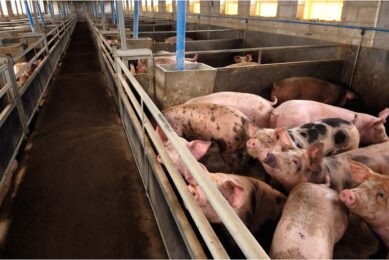
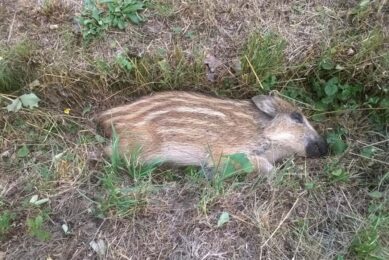
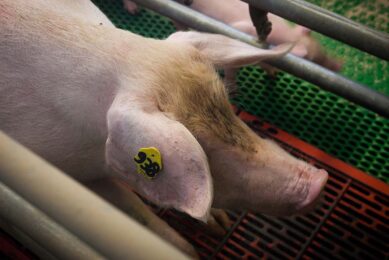
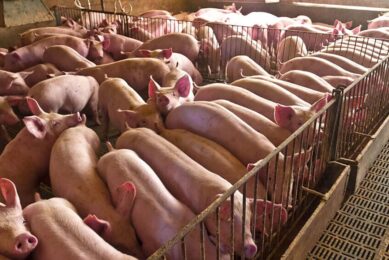





 WP Admin
WP Admin  Bewerk bericht
Bewerk bericht